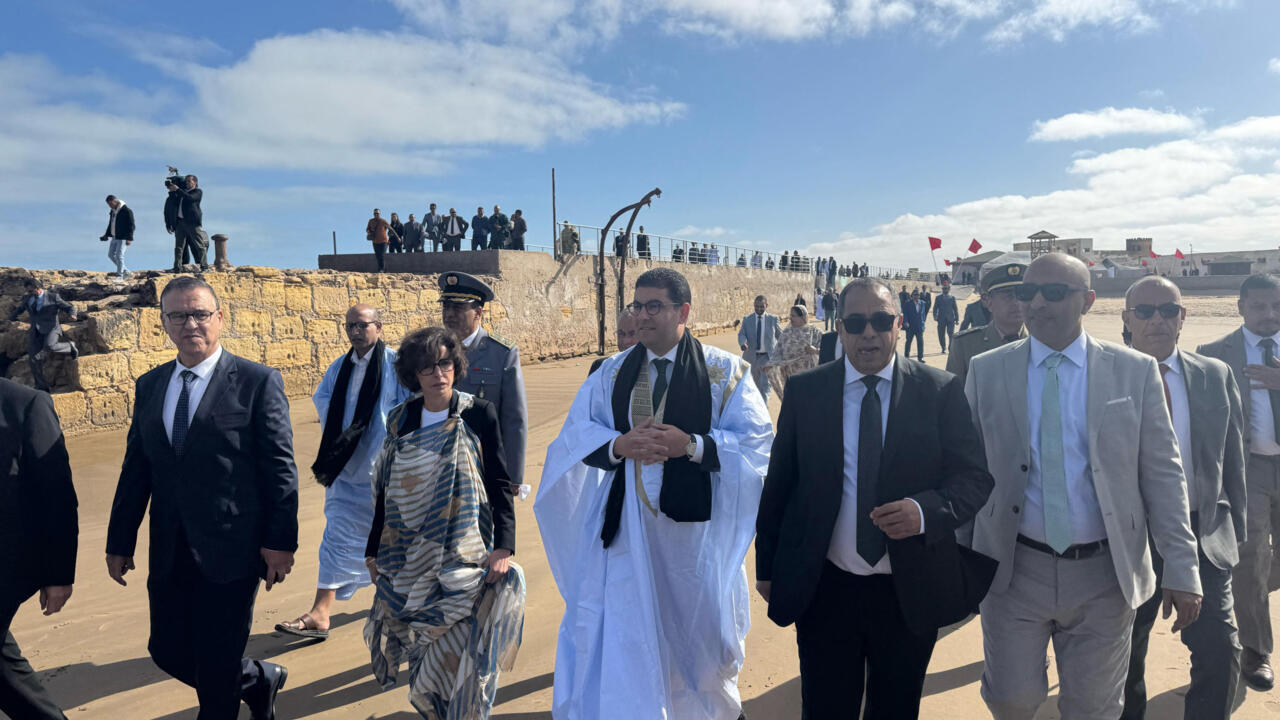France’s Culture Minister Rachida Dati became on Monday the first French official to make a formal visit to the Western Sahara, a sign of Paris’s recognition of Moroccan sovereignty over the disputed territory. For Algeria, which defends claims for the territory’s independence, the visit showed “contempt” for international law.
Western Sahara is a former Spanish colony controlled by Rabat but claimed by the Algeria-backed Polisario Front.
In July, France became the second permanent UN Security Council member after the US to back Morocco’s position.
Accompanied by Moroccan Culture Minister Mohamed Mehdi Bensaid, Dati launched a French cultural mission in Laayoune, Western Sahara’s main city.
She promised to open the territory’s first French culture centre to “benefit children in the region, but also teachers, schools, students and teacher trainers”.
French support for Rabat over Western Sahara has angered both the Polisario Front and Algiers.
“The visit of a French government official is of particular gravity,” the Algerian Foreign Ministry said in a statement Tuesday, adding it was “condemnable on more than one account”.
“It reflects a blatant contempt for international law by a permanent member of the Security Council, contributes to the consolidation of Morocco’s fait accompli in Western Sahara – a territory where the decolonisation process remains unfinished and where the exercise of the right to self-determination remains unfulfilled.”
Algiers also slammed the “detestable image of a former colonial power in solidarity with a new one”.
Meanwhile, the separatist Polisario Front accused France of defying international law and “showing utter contempt for the rights of the Sahrawi people”.
The United Nations considers Western Sahara a “non-self-governing territory” and has had a peacekeeping mission there since 1991. Its stated aim is to organise a referendum on the territory’s future but Rabat has repeatedly rejected any vote in which independence is an option, instead proposing autonomy under Morocco.
France’s stance on Western Sahara has been ambiguous in recent years, often straining ties between Rabat and Paris.
But in July, French President Emmanuel Macron said that Morocco’s autonomy plan was the “only basis” to resolve the Western Sahara dispute.
The turnabout drew a strong reaction from Algiers and marked a further slide in diplomatic relations between Paris and Algiers.
Algeria cut diplomatic relations with Rabat in 2021 – the year after Morocco normalised ties with Israel under a deal that awarded it US recognition of its annexation of Western Sahara.
Macron renewed French support for Morocco’s plan in October, while the foreign minister promised to expand France’s consular presence to the territory. Economic deals worth over $10 billion were signed, leading to Moroccan mediating the release of four French “spies” held in Burkina Faso.
Also in October, the UN Security Council called for parties to “resume negotiations” to reach a “lasting and mutually acceptable solution” for the Western Sahara dispute.



Ah, the geopolitical theatre never disappoints. France’s colonial hangover manifests yet again, this time as Rachida Dati parades through Western Sahara like a modern-day viceroy. Morocco’s puppet show gains a new cheerleader, while Algeria fumes—performative outrage from a regime equally shackled to its own illusions of grandeur.
The UN’s “non-self-governing territory” label is just bureaucratic confetti. Realpolitik trumps self-determination every time, and Macron’s pivot to Rabat reeks of desperation—energy deals and spy swaps dressed as diplomacy.
Algeria’s tantrum? Predictable. Cutting ties with Morocco over Western Sahara while cozying up to Moscow and Beijing is peak hypocrisy. Everyone’s playing empire, just with different flags.
And the Sahrawi people? Still waiting in the wings, their future bartered over like a souk rug. Autonomy plans and cultural centers are just smokescreens for resource extraction. The cycle repeats: colonial powers swap hats, locals pay the tab.